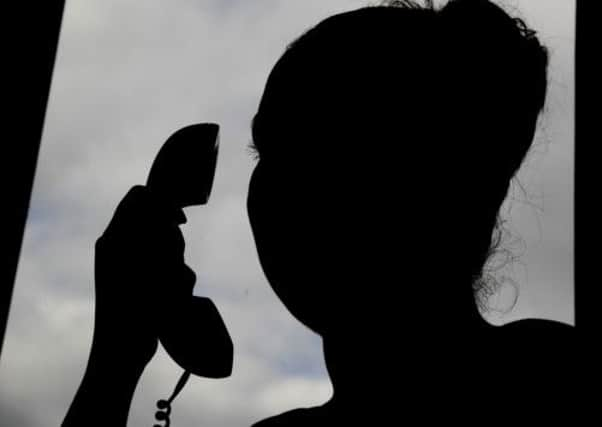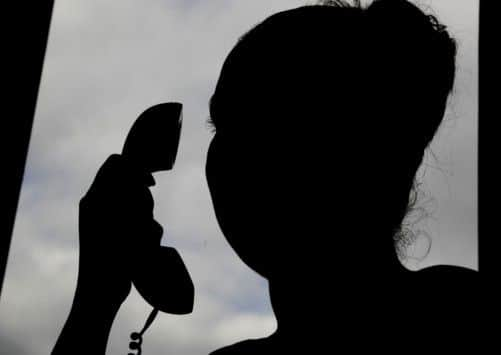Video: How to avoid ‘vishing’ phone con


Financial Fraud Action UK (FFA UK) said it has seen a £36 million increase over the last year in crimes involving either online and phone banking, purchases made online and over the phone or criminals filling out fraudulent applications.
At least £7 million of this has been put down to a scam known as “vishing”, according to the body, which works to prevent fraud on behalf of the financial services industry.
Advertisement
Hide AdAdvertisement
Hide AdAlmost a quarter of people in the UK (23%) have received a cold call requesting personal or financial information, potentially meaning they could go on to become a victim of the scam if the caller was not legitimate.


Four in 10 people (39%) admitted they found it challenging to tell the difference between a genuine and fraudulent call, FFA UK found.
The body estimates that around one in 25 UK adults may have already been duped in such a con and around four in 10 (43%) victims are estimated to be aged over 50 years old.
Vishing involves a fraudster posing on the phone as someone from a bank or building society fraud investigation team, the police or another legitimate organisation such as a telephone or internet provider.
Advertisement
Hide AdAdvertisement
Hide AdThey attempt to get financial information which often includes card and bank account details, pin numbers, as well as information about the victim, such as their full name, date of birth and address, which they can then use to plunder the victim’s account or commit identity fraud.
Conmen can also deceive the victim into transferring money themselves from their own bank account to one which is accessible to the fraudster. A variation on this scam involves the victim being persuaded to withdraw money from a branch or ATM to pay those behind the fraud.
Almost a third (30%) of consumers were found to have received at least 10 cold calls per month, with two-fifths (41%) of people suspecting that they had received a fraudulent or suspect call. Older people were much more likely to receive calls that they felt were dubious.
The fraud prevention body said people should not be afraid to just put the phone down on someone if they are unsure about handing over details.
Advertisement
Hide AdAdvertisement
Hide AdIt warned consumers not to assume a caller is genuine just because they hold some information about them. Criminals may already have got hold of some basic information about a potential victim, such as a name, address and account details to try to make the call appear legitimate.
Cold callers who suggest that you call them back to check authenticity can also keep your phone line open by not putting the phone down at their end.
FFA UK is also warning consumers that their bank will never call up and ask for their four-digit card pin or ask them to withdraw money to hand over to them or transfer money to another account, even if they say it is in the consumer’s name.
Detective Chief Inspector Dave Carter, head of the Dedicated Cheque and Plastic Crime Unit (DCPCU), which is sponsored by the cards and banking industries, said: “Fraudsters can use personal information gleaned from vishing in a number of ways including to access a victim’s bank account, make fraudulent purchases and commit identity theft.
Advertisement
Hide AdAdvertisement
Hide Ad“Always be wary of cold callers who suggest you hang up the phone and call them back.
“Remember that it takes two people to terminate a call so try and use a different phone line if you are asked to ring back. If you think you’ve already been a victim of this scam, contact your bank or card company immediately.”
More than 2,000 people took part in the research.